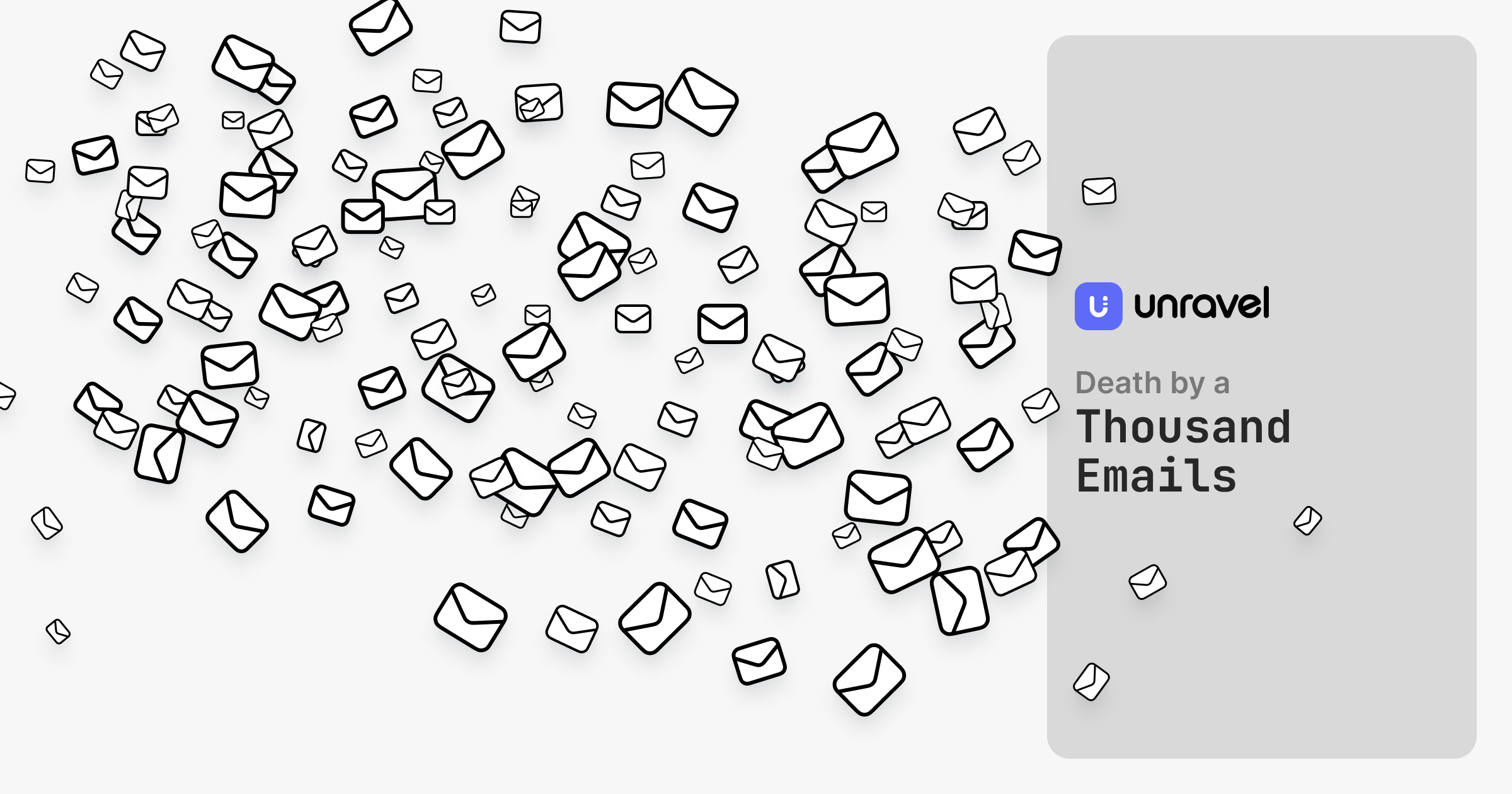
It is a cold, wet morning in November. You've arrived to the office, coffee in hand, dreading what awaits you after your two week vacation. You open your laptop, log in to your email and there they are: 356 attention seeking, unknown enemies, licking their lips at the amount of time, stress and anxiety they're going to cause you. Unread emails - demanding a response.
Where do you start? Maybe you fill that coffee cup back to the brim and get stuck in for a few painful hours. Maybe you select them all and mark them as read and wait for follow ups, running the risk of missing something important. Maybe you even delete them all thinking that if it's important enough the sender will send you a follow up.
How have we as intelligent beings gotten ourselves so tied up in email as the standard form of business communication for the past 40 years? What causes us to dread coming back to work after a short period off? Let's explore.
Too many emails
The first and most obvious problem is that we receive too many emails. Email, as is very evident from the name, was a direct derivative of traditional postal mail, however, which much fewer restrictions. This, along with the absence of more modern chat applications like Slack and Teams, led to email being used for both long and short form communications both internally and externally influencing habits in the long term.
Irrelevant emails
A more nuanced problem than too many emails is irrelevant emails. Equating traditional postal mail and email highlights this issue. It costs money to send postal mail while sending email is essentially free. While you still receive junk mail in your post box it still pales in comparison to the amount of junk and irrelevant email you receive in your inbox. It is also exponentially easier to acquire an email address than it is a physical address. This has led to a barrage of sales emails from sales reps which, while in some cases may be of value to you, are mostly irrelevant and distracting.
Microdecisions
One of the less understood problems relating to email are the amount of subconscious microdecisions you have to make:
- Should I read this email?
- Should I archive or delete?
- Which email will I answer first?
- Should I put this in the finance or accounting folder?
While the direct results of these microdecisions mean nothing in the short term, their longer term effects on both your mental state and the time you spend on email can be detrimental.
Chaos
Email is disordered, disorganized and anarchic in so many ways. No two email providers treat email the same, both logically and technologically, meaning the technology upon which email is built has changed little since it's inception. It is hard for one company to drive this change though due to the fact that email is so ubiquitous.
The turbulent nature of the technology behind email pales in comparison to the chaos and anarchy of how people use email - where it seems anything goes. Everyones email "style" is different. The fact that you can have an email style is bad enough but what it leads to is nothing short of diabolical. What used to be a simple phone call or quick chat can turn into myriad misunderstandings and further time-consuming issues.
Better way
But what if there was a better way? That same morning in November, still cold and wet, you arrive to the office, the vacation spirit still very much alive inside. You meet Sam on the way to your desk and you excitedly tell her how nice the weather was in Florida while you were there. You sit down, open your laptop, log into your email and read just five emails that require your attention - nothing else. You decide to get them out of the way before the stand up at 9.30.
This seems like a far cry from what the populace experience today but it is quickly achievable using the right technology and mindset. To find out how you can achieve this visit Unravel.